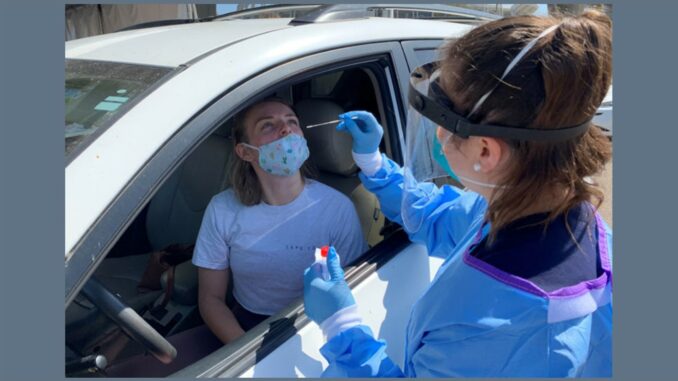
Update 12/27/2021: San Diego Public Libraries have a limited supply of COVID self-test home kits; limit one per person per day until the supply runs out. Each kit contains two antigen tests. Please contact your local library about test kit availability.
From 2-1-1 San Diego: If you have been exposed to someone with COVID-19 and/or you have symptoms of COVID-19 (Fever or chills, Cough, Shortness of breath or difficulty breathing, Fatigue, Muscle or body aches, Headache, New loss of taste or smell, Sore throat, Congestion or runny nose, Nausea or vomiting, Diarrhea), and/or would like to get tested, contact your health care provider. Health plans are required to cover COVID-19 tests. If you do not have a health care provider, call 2-1-1. If you have serious symptoms, like difficulty breathing, call 9-1-1. If you are unable to get a test from your health care provider, the following options are available.
FREE COVID-19 testing is available through the County of San Diego. Most testing locations do not require an appointment and results generally come back in about one or two days. If you are unable to get a test for your child or youth from your health care provider, children six months and older can be tested at any County test site. For locations and availability of county sites, visit https://211sandiego.org/covid19/covid-19-testing/
From the CDC at https://www.cdc.gov/coronavirus/2019-ncov/testing/diagnostic-testing.html, the following people should get tested for COVID-19:
- People who have symptoms of COVID-19.
- People who have come into close contact with someone with COVID-19 should be tested to check for infection:
- Fully vaccinated people should be tested 5–7 days after their last exposure.
- People who are not fully vaccinated should get tested immediately when they find out they are a close contact. If their test result is negative, they should get tested again 5–7 days after their last exposure or immediately if symptoms develop.
- People not fully vaccinated with COVID-19 vaccine who are prioritized for expanded community screening for COVID-19.
- People not fully vaccinated with COVID-19 vaccine who have been asked or referred to get testing by their school, workplace, healthcare provider, state, tribal, local, or territorial health department.
For related posts, visit https://www.universitycitynews.org/category/community-health/


